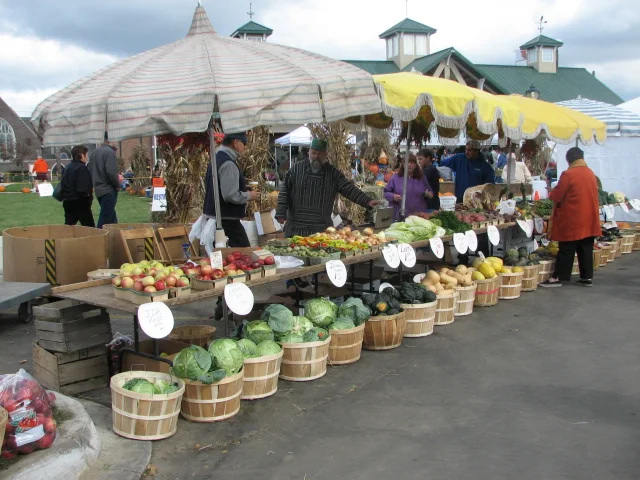The benefits of independently owned businesses are nothing new, but a growing movement called “localism” is showing that they not only create positive economic benefits but also can drive positive social and environmental change.
One group championing localism, Oakland, Calif.-based BALLE, notes that some of the most significant benefits is the multiplier effect of money and jobs.
But localism, which is closely connected with social enterprise initiatives, also has a deeper connection with well-being and nature. And often these businesses focus on food.
Judy Wicks is one of the pioneers of the modern localism movement. Back in 1983, she helped save her Philadelphia neighborhood from demolition, to make way for a new shopping mall. She opened a café on first floor of the brownstone where she lived and started a business that matched her beliefs in community-focused economics and sustainability.
She paid employees a living wage, bought local, sustainably grown produce and local, humanely raised meat. She hosted community events, became the first business in Pennsylvania to run on renewable energy and started a regional food network.
“Business is about relationships with everyone that you buy from and sell to and work with and about our relationship with Earth itself,” she said during a talk in late April at the SEEED Summit at Brown University.
Wicks promotes localism through BALLE, which she co-founded, and numerous speaking engagements, often held in urban areas that are trying to promote community-driven businesses.
Dan Levinson, one of the SEEED Summit organizers, said the Providence area has the right elements to foster businesses with the dual mission of making a profit and doing good for the neighborhood. He noted that the city is small with a vibrant and motivated population that is eager to foster change. It has high unemployment, but many livable neighborhoods, good institutions and a mix of wealth and opportunity, he added.
“What I like about Providence, it’s a great economic petri dish,” Levinson said.
Organizations such as Farm Fresh Rhode Island have already made a big difference through the virtues of localism. The Pawtucket-based food distribution center of locally made, grown and raised food has provided much of the infrastructure for Rhode Island’s local food movement. Through farmers markets, food distribution and culinary processing, Farm Fresh sustains local farms, food trucks and restaurants.
Through his work at the Schumacher Center for a New Economics and the Providence-based Social Enterprise Greenhouse, Levinson, who is moving to Providence, plans to promote companies with an unorthodox business model, such as Wash Cycle Laundry, a high-labor, high-paying, bike-driven laundry service that has expanded from Philadelphia to Washington, D.C., and Austin, Texas.
Levinson said one of the benefits of localism and social equity is that they aren’t clearly defined. Most have a focus on making a profit while benefiting workers and the environment.
“When we say ‘local’ we don’t overly define it. You kind of know it when you see it,” he said.
Wicks, for her part, resisted suggestions to expand her restaurant to other cities. She instead sold it to a local businessman who agreed to continue her ethical business practices. Selling to a larger corporation was unthinkable, she said. The conventional business mantra of “grow or die,” Wicks said, only siphons jobs, wealth and political power from a community.
“I realized what was most important to me, and that was authenticity of the relationship with everybody in my business,” she said. “That really brought joy to me and my work.”
The environment matters Environmental matters run deep in the localism movement. Wicks said many of the successful economic village centers of the past were devastated by the expansion of the oil industry. Oil advocated for the expansion of the highway system, an intentional decline of rail use and a reliance on automobiles. Money soon left local economies, as did jobs, while the oil industry’s power concentrated in D.C.
To this day the oil industry maintains massive influence in Congress and political centers around the world.
Environmental issues such as climate change, Wicks said, are therefore impossible to address on a national level. “Oil is the blood of the long-distance global economy,” she said.
Levinson said localism shifts money and power back to the communities and reduces the biggest contributors to climate emissions: energy use and transportation. The community-oriented business model is attempting to undo the entrenched interests of large, centralized companies, he said.
“Big business has totally wiped out locally owned business,” Levinson said.
The iconic American Main Street is now dominated by McDonald’s. Most workers today are enslaved to their businesses, which seek to just make the most money they can in a barely legal way, Levinson said.
Locally owned businesses, he said, “are much more considerate of employees and much more considerate of place.”
Areas succeeding with localism are typically small cities or urban neighborhoods with already-built village centers. These areas are often more adaptable to smart-growth principals for transportation and housing.
Wicks and Levinson both agree that rural areas can also thrive by embracing the local agricultural movement and ancillary revenue streams from sources such as renewable energy. Wicks said she envisions an emptying of suburbs and shopping malls as the reverse migration to urban centers grows and energy becomes more expensive.
She said the suburbs can endure by adopting smart-growth principals and planning that encourages village centers, local shops and farming. “If suburban homes became small farms that would be cool,” she said.
Levinson noted that localism won’t likely take root anywhere without a passion for change. “The community really has to want it,” he said.


